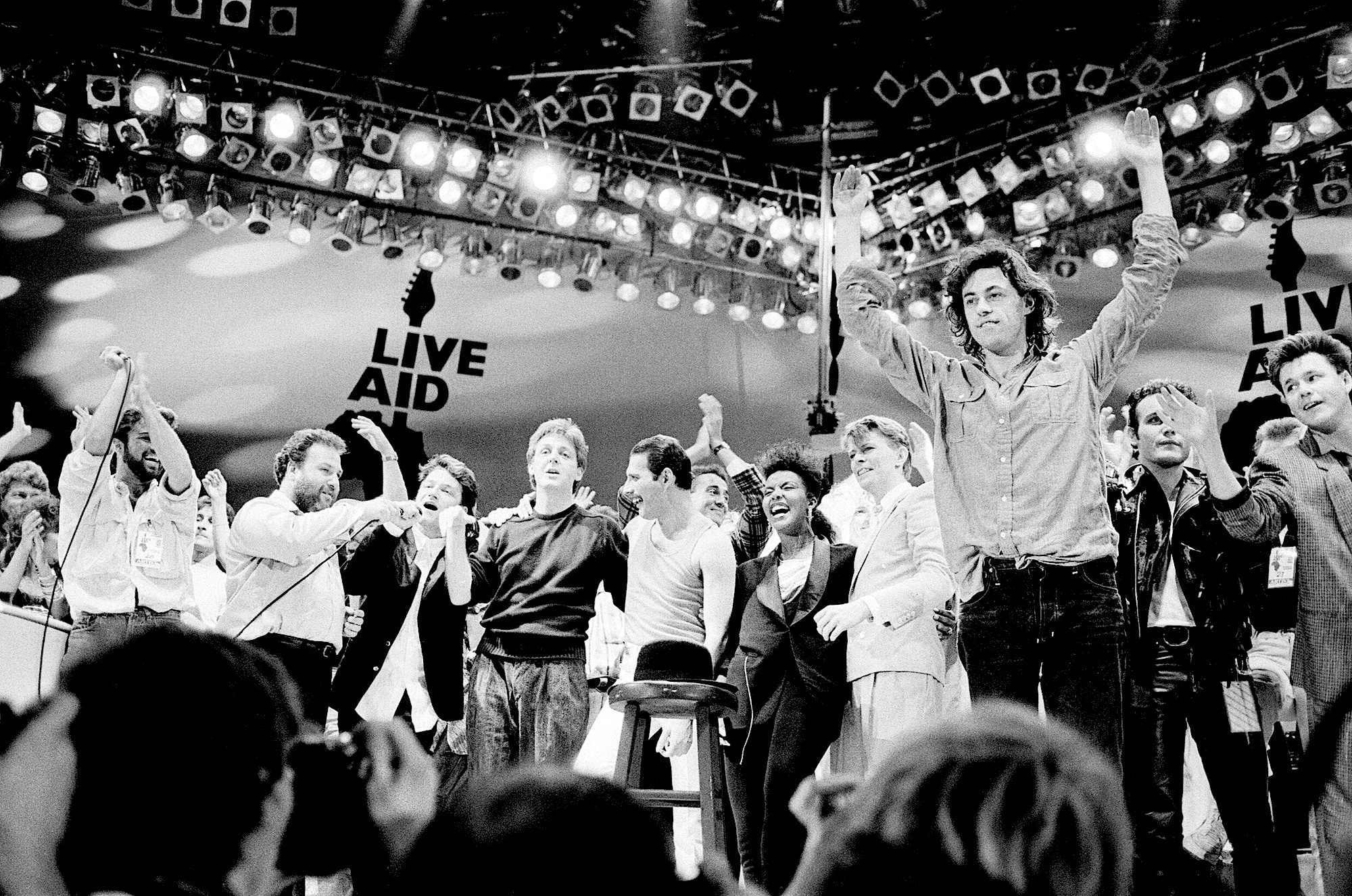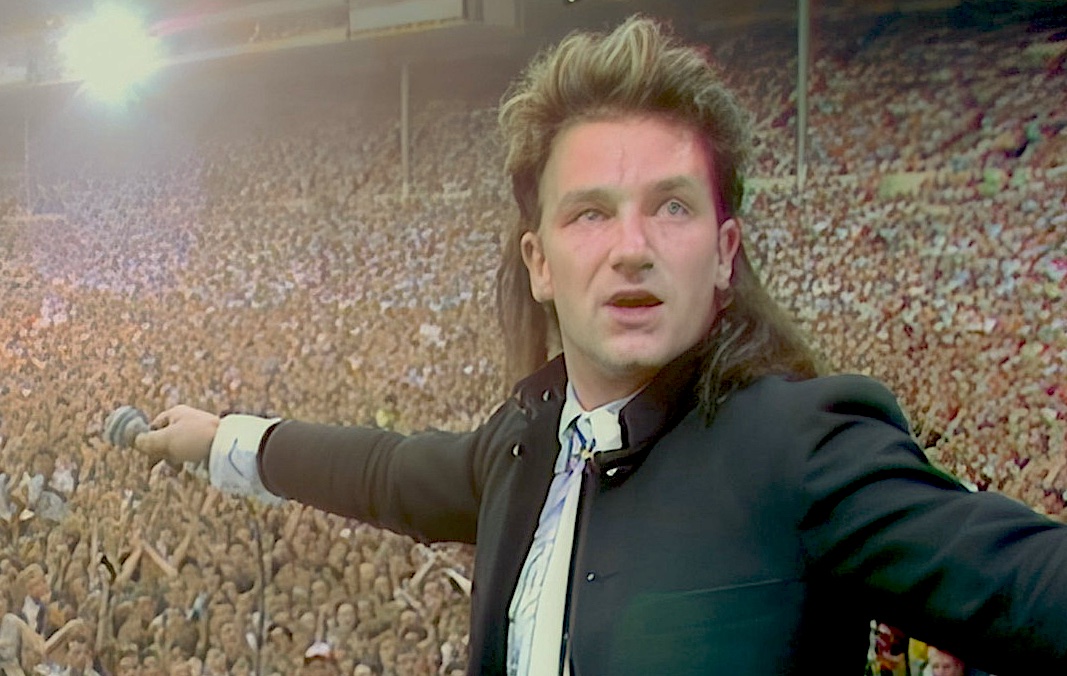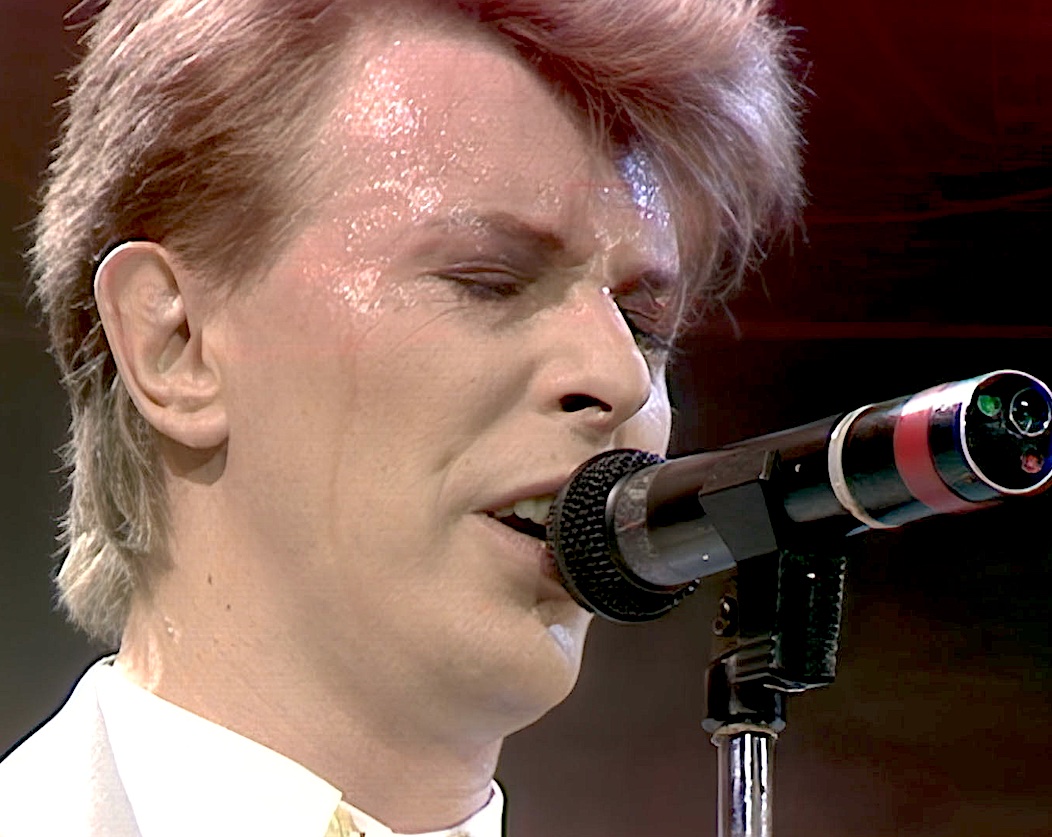Live Aid at 40: When Rock'n'Roll Took on the World, BBC Two review - how Bob Geldof led pop's battle against Ethiopian famine | reviews, news & interviews
Live Aid at 40: When Rock'n'Roll Took on the World, BBC Two review - how Bob Geldof led pop's battle against Ethiopian famine
Live Aid at 40: When Rock'n'Roll Took on the World, BBC Two review - how Bob Geldof led pop's battle against Ethiopian famine
When wackily-dressed pop stars banded together to give a little help to the helpless

“Bob’s not the kind of guy you can say no to,” said Sting, reminiscing about the origins of 1984’s Band Aid charity single “Do They Know It’s Christmas?”. “He’s persistent.”
He spoke, of course, of Bob Geldof, then best known as the singer with Dublin band the Boomtown Rats, but destined to be remembered as the driving force behind Band Aid and the subsequent massive Live Aid concerts which took place on both sides of the Atlantic in July 1985. Experts believe the shows were watched by 1.9 billion people (onstage at Wembley Stadium, pictured below). The Boomtown Rats had some success on the UK charts, though the Americans never showed much interest, but Geldof became the flag-bearer for a new era of showbiz activism. This three-part series is a vivid tribute to his determination, energy and sheer bloody-mindedness as he responded to news reports of the appalling famine in Ethiopia (from the BBC’s Michael Buerk) by gathering together as many pop star buddies as he could find, and herded them into a London studio to record “Do They Know It’s Christmas?” It was the golden age of Britain’s New Pop (Duran Duran, Culture Club, Ultravox, Spandau Ballet etc), and Geldof apparently bumped into several of them on Chelsea’s King’s Road and invited them aboard.
The Boomtown Rats had some success on the UK charts, though the Americans never showed much interest, but Geldof became the flag-bearer for a new era of showbiz activism. This three-part series is a vivid tribute to his determination, energy and sheer bloody-mindedness as he responded to news reports of the appalling famine in Ethiopia (from the BBC’s Michael Buerk) by gathering together as many pop star buddies as he could find, and herded them into a London studio to record “Do They Know It’s Christmas?” It was the golden age of Britain’s New Pop (Duran Duran, Culture Club, Ultravox, Spandau Ballet etc), and Geldof apparently bumped into several of them on Chelsea’s King’s Road and invited them aboard.
Ultravox’s Midge Ure recounted the way they wrote the song in question, which began with Geldof’s primitive demo version on which he sounded like a bad Bob Dylan impersonator. “Bob’s not a guitar player,” Ure added wryly. Between them, they got a vaguely finished version nailed down and invited everyone with a chart profile they could think of to come and perform on it. Waiting nervously outside Sarm West studios in Notting Hill, Geldof was terrified that nobody would come, but was then amazed to see everyone from Duran Duran, Phil Collins, the Spandau boys and Paul Weller to George Michael, Boy George, Sting, Bananarama and Bono (pictured below) turning up.
 The whole project went nuts. The single raised £1m in the first week, every record pressing plant across Europe was enlisted to manufacture more copies, and in New York record stores sold out of it within an hour.
The whole project went nuts. The single raised £1m in the first week, every record pressing plant across Europe was enlisted to manufacture more copies, and in New York record stores sold out of it within an hour.
It was huge, but Live Aid was huger still. Instigated by Harry Belafonte, a glittering cadre of American artists had banded together as USA for Africa to record “We Are The World”, bringing together such pop titans as Michael Jackson, Lionel Richie, Bruce Springsteen, Tina Turner and on and on, with the great Quincy Jones handling production. It promptly topped the US chart and became the biggest-selling American single in pop history, even if the professorial rock critic Greil Marcus thought it sounded like a Pepsi commercial.
Thus a transatlantic hook-up seemed like a logical move, though staging a globe-spanning live telecast had never been attempted before. Nobody was even sure the technology could cope with it, but the twin concerts at Wembley Stadium and Philadelphia’s John F Kennedy stadium became musical and socio-political benchmarks of the era. Despite the fact that Geldof hadn’t wanted Queen to perform (their set was arguably the highlight of the event), and even if Paul McCartney’s microphone didn’t work as he sang “Let It Be” (David Bowie at Live Aid, pictured below). In this pre-Oasis era, tickets for Wembley were £25 each.
 Apart from the music, this series does some probing into the political background of the Ethiopian famine. The Ethiopian regime wasn’t much interested in noble humanitarian gestures. For instance, we hear about the forced relocation of Ethiopians trapped in the country’s famine-stricken north, when they were crammed ruthlessly into Russian transport aircraft and carted off with consequent substantial loss of life (the Ethiopian government were Marxists with close ties to Moscow). It seems the government were willing to use starvation as a weapon against various armed rebel groups. Geldof recounts meeting Ethiopia’s President Mengistu, who asked Bob if he could give him £1m. Geldof retorted that “I think you’re a cunt.”
Apart from the music, this series does some probing into the political background of the Ethiopian famine. The Ethiopian regime wasn’t much interested in noble humanitarian gestures. For instance, we hear about the forced relocation of Ethiopians trapped in the country’s famine-stricken north, when they were crammed ruthlessly into Russian transport aircraft and carted off with consequent substantial loss of life (the Ethiopian government were Marxists with close ties to Moscow). It seems the government were willing to use starvation as a weapon against various armed rebel groups. Geldof recounts meeting Ethiopia’s President Mengistu, who asked Bob if he could give him £1m. Geldof retorted that “I think you’re a cunt.”
Geldof’s fearlessness and clarity of thought – he always stressed that his focus was on saving people’s lives, rather than being embroiled in political debate – seem remarkable, though as we head into episode three we find the focus shifting to Bono and the “Commission for Africa”, and the involvement of Tony Blair and George W. Bush in addressing a new Ethiopian starvation crisis in 2003. It feels like a very different programme as issues such as Third World debt relief and an Aids pandemic begin to complicate the picture, and the notion of a bunch of wackily-dressed pop stars banding together to save the world looks like something from another time and another place. These days, some of our musical practitioners seem more interested in eradicating people than saving them.
- Episode 3 is on BBC Two at 9pm on Sunday 13 July. All episodes available on BBC iPlayer
- More TV reviews on theartsdesk
The future of Arts Journalism
You can stop theartsdesk.com closing!
We urgently need financing to survive. Our fundraising drive has thus far raised £49,000 but we need to reach £100,000 or we will be forced to close. Please contribute here: https://gofund.me/c3f6033d
And if you can forward this information to anyone who might assist, we’d be grateful.

Subscribe to theartsdesk.com
Thank you for continuing to read our work on theartsdesk.com. For unlimited access to every article in its entirety, including our archive of more than 15,000 pieces, we're asking for £5 per month or £40 per year. We feel it's a very good deal, and hope you do too.
To take a subscription now simply click here.
And if you're looking for that extra gift for a friend or family member, why not treat them to a theartsdesk.com gift subscription?
more TV
 In Flight, Channel 4 review - drugs, thugs and Bulgarian gangsters
Katherine Kelly's flight attendant is battling a sea of troubles
In Flight, Channel 4 review - drugs, thugs and Bulgarian gangsters
Katherine Kelly's flight attendant is battling a sea of troubles
 Alien: Earth, Disney+ review - was this interstellar journey really necessary?
Noah Hawley's lavish sci-fi series brings Ridley Scott's monster back home
Alien: Earth, Disney+ review - was this interstellar journey really necessary?
Noah Hawley's lavish sci-fi series brings Ridley Scott's monster back home
 The Count of Monte Cristo, U&Drama review - silly telly for the silly season
Umpteenth incarnation of the Alexandre Dumas novel is no better than it should be
The Count of Monte Cristo, U&Drama review - silly telly for the silly season
Umpteenth incarnation of the Alexandre Dumas novel is no better than it should be
 The Narrow Road to the Deep North, BBC One review - love, death and hell on the Burma railway
Richard Flanagan's prize-winning novel becomes a gruelling TV series
The Narrow Road to the Deep North, BBC One review - love, death and hell on the Burma railway
Richard Flanagan's prize-winning novel becomes a gruelling TV series
 The Waterfront, Netflix review - fish, drugs and rock'n'roll
Kevin Williamson's Carolinas crime saga makes addictive viewing
The Waterfront, Netflix review - fish, drugs and rock'n'roll
Kevin Williamson's Carolinas crime saga makes addictive viewing
 theartsdesk Q&A: writer and actor Mark Gatiss on 'Bookish'
The multi-talented performer ponders storytelling, crime and retiring to run a bookshop
theartsdesk Q&A: writer and actor Mark Gatiss on 'Bookish'
The multi-talented performer ponders storytelling, crime and retiring to run a bookshop
 Ballard, Prime Video review - there's something rotten in the LAPD
Persuasive dramatisation of Michael Connelly's female detective
Ballard, Prime Video review - there's something rotten in the LAPD
Persuasive dramatisation of Michael Connelly's female detective
 Bookish, U&Alibi review - sleuthing and skulduggery in a bomb-battered London
Mark Gatiss's crime drama mixes period atmosphere with crafty clues
Bookish, U&Alibi review - sleuthing and skulduggery in a bomb-battered London
Mark Gatiss's crime drama mixes period atmosphere with crafty clues
 Too Much, Netflix - a romcom that's oversexed, and over here
Lena Dunham's new series presents an England it's often hard to recognise
Too Much, Netflix - a romcom that's oversexed, and over here
Lena Dunham's new series presents an England it's often hard to recognise
 Insomnia, Channel 5 review - a chronicle of deaths foretold
Sarah Pinborough's psychological thriller is cluttered but compelling
Insomnia, Channel 5 review - a chronicle of deaths foretold
Sarah Pinborough's psychological thriller is cluttered but compelling
 Live Aid at 40: When Rock'n'Roll Took on the World, BBC Two review - how Bob Geldof led pop's battle against Ethiopian famine
When wackily-dressed pop stars banded together to give a little help to the helpless
Live Aid at 40: When Rock'n'Roll Took on the World, BBC Two review - how Bob Geldof led pop's battle against Ethiopian famine
When wackily-dressed pop stars banded together to give a little help to the helpless
 Hill, Sky Documentaries review - how Damon Hill battled his demons
Alex Holmes's film is both documentary and psychological portrait
Hill, Sky Documentaries review - how Damon Hill battled his demons
Alex Holmes's film is both documentary and psychological portrait

Add comment